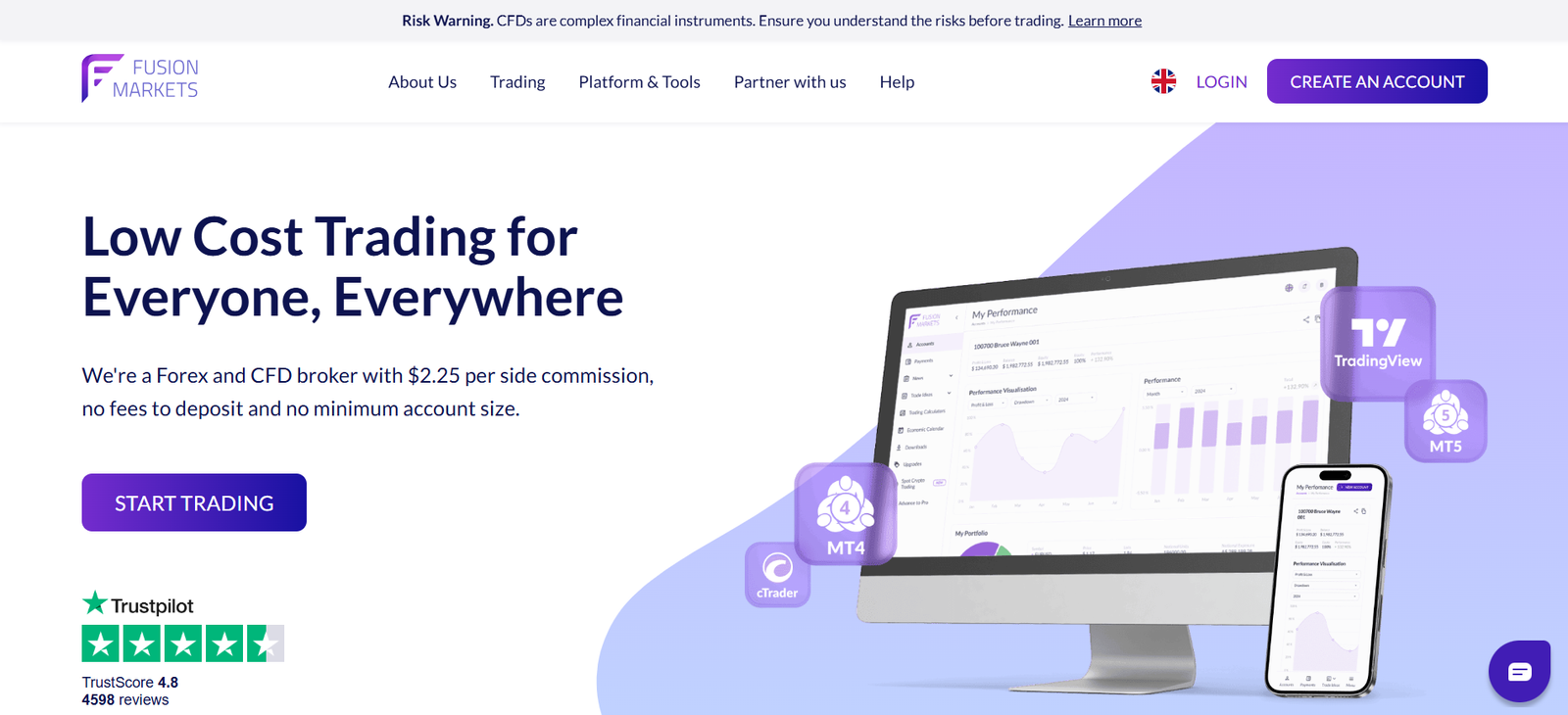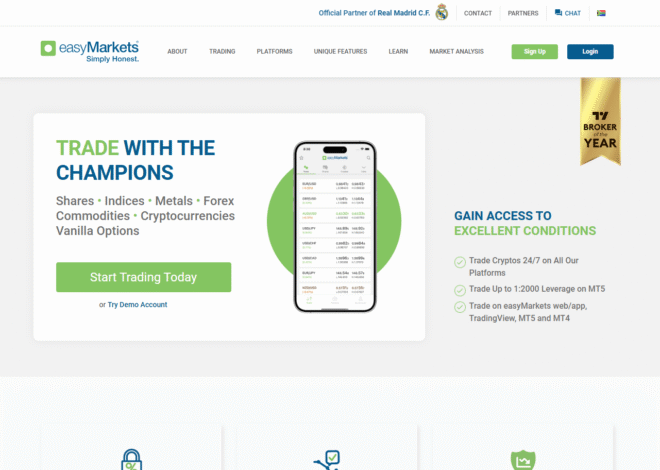
Fusion Markets EXPOSED: Read This Critical Warning Before Investing
The world of online trading promises lucrative returns, but beneath the glossy marketing, a dangerous landscape of unregulated brokers and deceptive practices often lurks. Our investigative team has turned its spotlight on Fusion Markets, a platform that has increasingly drawn the attention of concerned traders and financial watchdogs. This comprehensive report serves as an urgent warning, meticulously detailing the red flags, user-reported issues, and regulatory concerns that potential investors simply cannot afford to ignore. Before you entrust your hard-earned capital to Fusion Markets, we urge you to read every word of this critical exposé.
Our objective is clear: to provide a fact-based, no-holds-barred analysis of Fusion Markets‘ operations, highlighting patterns of behavior that align with those of platforms known for financial misconduct. From questionable regulatory frameworks to a disturbing volume of unresolved customer complaints, the evidence suggests that traders considering Fusion Markets should proceed with extreme caution, if at all.
Regulatory Warnings and Compliance Issues: A Troubling Foundation
One of the most critical indicators of a broker’s trustworthiness is its regulatory standing. Reputable brokers operate under the strict oversight of top-tier financial authorities, offering investors a crucial layer of protection. Unfortunately, our investigation into Fusion Markets reveals a convoluted and often concerning regulatory landscape that should immediately raise alarms. While Fusion Markets often touts its various licenses, a closer look reveals a patchwork of regulations, some of which offer minimal investor safeguards.
Lack of Tier-1 Licensing for Primary Operations
While Fusion Markets claims to be regulated by entities like the Australian Securities and Investments Commission (ASIC) and the Vanuatu Financial Services Commission (VFSC), the devil is in the details. Many clients, particularly those outside Australia, are often onboarded under the less stringent oversight of entities like Fusion Markets International Ltd, which is regulated by the VFSC. Vanuatu’s regulatory framework is notoriously lax compared to Tier-1 jurisdictions such as the FCA (UK), CySEC (Cyprus), or even ASIC itself for its domestic operations. This jurisdictional arbitrage allows brokers to operate with significantly fewer compliance obligations, leaving clients vulnerable. The practical implication is that if disputes arise, or if the company faces financial difficulties, the recourse available to investors under VFSC regulation is severely limited, often amounting to little more than a paper-thin promise of protection.
The Illusion of Security: Offshore Jurisdictions and Investor Risk
The use of offshore entities is a common tactic employed by less reputable brokers to circumvent robust regulatory scrutiny. For Fusion Markets, this means that while an Australian entity might exist, many international clients are directed to an offshore arm. This distinction is vital because it determines which laws protect your funds. In jurisdictions like Vanuatu, investor compensation schemes are often non-existent or inadequate, and the legal framework for resolving disputes is weak. This creates an environment where Fusion Markets can operate with relative impunity, making it incredibly difficult for clients to recover funds in cases of malpractice or platform failure. The perceived security offered by the brand name often masks the precarious reality of the entity holding your funds.
ASIC’s Role and Geographic Limitations
While Fusion Markets does have an ASIC-regulated entity, Fusion Markets Pty Ltd, it’s crucial to understand that this regulation primarily applies to Australian residents. Non-Australian clients might be inadvertently led to believe they are afforded the same level of protection, only to find themselves under the jurisdiction of a far weaker regulator. ASIC, like other top-tier regulators, has stringent requirements for client fund segregation, leverage limits, and dispute resolution. However, if your account is not held with the ASIC-regulated entity, these protections simply do not apply. This creates a deceptive impression of broad regulatory compliance, when in reality, a significant portion of their global client base may be exposed to much higher risks. Traders must verify which specific entity they are signing up with and what regulatory body oversees that particular entity.
Analysis of User Complaints: A Disturbing Pattern Emerges
Beyond regulatory frameworks, the true measure of a broker’s integrity often lies in the experiences of its users. Our deep dive into various online forums, review sites, and consumer complaint platforms reveals a disturbing pattern of dissatisfaction and serious allegations against Fusion Markets. These aren’t isolated incidents but rather a consistent narrative of issues that paint a concerning picture.
Consistent Allegations of Fund Access Issues
Among the most alarming and frequently reported complaints are those concerning difficulties with accessing funds. Users across multiple platforms describe significant delays in withdrawal processing, often stretching for weeks or even months. Some report outright refusal to process withdrawals, with Fusion Markets allegedly providing vague excuses, demanding excessive additional documentation, or simply becoming unresponsive. This tactic is a classic hallmark of scam brokers who aim to retain client funds for as long as possible, often hoping the client will give up. The emotional and financial distress caused by these alleged actions is immense, leaving traders feeling helpless and betrayed.
Poor Customer Support and Unresolved Disputes
A common thread in user complaints is the alleged unresponsiveness and unhelpfulness of Fusion Markets‘ customer support. When issues arise, particularly concerning withdrawals or trading discrepancies, users report encountering significant hurdles in getting timely and effective assistance. This often manifests as long wait times, generic or evasive responses, and a lack of clear pathways for dispute resolution. A broker’s customer support is its frontline for building trust; a consistently poor performance in this area is a major red flag, suggesting a potential lack of commitment to client satisfaction and, more troublingly, a deliberate strategy to frustrate clients into abandoning their claims.
Allegations of Trading Platform Manipulation and Slippage
While harder to definitively prove, a recurring theme in some advanced trader forums involves allegations of suspicious trading conditions. Users have reported instances of unexplained price spikes, significant slippage during volatile market conditions (often unfavorable to the trader), and unusual execution delays that seem to disproportionately affect profitable trades. While some slippage is normal in fast-moving markets, a consistent pattern that always benefits the broker or leads to stop-loss hunts raises serious questions about the fairness and transparency of Fusion Markets‘ trading environment. Such allegations, even if unproven, contribute to a climate of distrust and suggest a platform that may not operate with the integrity expected of a legitimate financial institution.
Deceptive Marketing Tactics: Luring Unsuspecting Investors
Like many brokers operating in the periphery of strict regulation, Fusion Markets appears to employ marketing strategies that are designed to attract new clients, often by painting an overly optimistic picture or by making promises that are difficult to substantiate. These tactics, while not illegal in all jurisdictions, can be misleading and contribute to an environment where uninformed investors are easily exploited.
Misleading Profit Claims and Unrealistic Expectations
Many promotional materials and affiliate marketing efforts associated with Fusion Markets tend to highlight the potential for high returns, often using language that minimizes the inherent risks of Forex and CFD trading. While all brokers are required to include risk disclaimers, the emphasis in certain marketing campaigns often leans heavily towards potential profits, creating unrealistic expectations for novice traders. This approach can encourage individuals to invest more than they can afford to lose, leading to significant financial hardship when the inevitable losses occur. The push for high leverage, also prevalent in less regulated environments, further amplifies these risks.
Bonus Scams and Onerous Terms and Conditions
The offering of “deposit bonuses” is a classic tactic used by questionable brokers, and Fusion Markets has been associated with such promotions. While a bonus might seem appealing, these often come with extremely restrictive terms and conditions, such as impossibly high trading volume requirements that must be met before any funds (including the initial deposit) can be withdrawn. These terms effectively trap client funds, making it nearly impossible to access them. Many users only discover these draconian conditions after they have deposited funds and attempted to withdraw, leading to frustration and financial loss. Always read the fine print, but with such brokers, even the fine print can be designed to ensnare.
Aggressive Sales Tactics and Pressure to Deposit More
Reports suggest that individuals who express interest in Fusion Markets may be subjected to persistent and aggressive sales calls, often from “account managers” who pressure them to deposit larger sums of money or to invest in supposedly “guaranteed” trading signals. These tactics prey on the inexperience of new traders, convincing them to take on more risk than they are comfortable with. Such high-pressure sales environments are a significant red flag, as legitimate financial advisors focus on suitability and risk assessment, not on maximizing deposits at all costs. This behavior aligns with patterns observed in boiler room operations.
Withdrawal Problems: A Major Red Flag
Perhaps the most concrete and alarming set of complaints surrounding Fusion Markets pertains to its withdrawal process. For any legitimate financial institution, the ability of clients to access their funds promptly and without undue hindrance is fundamental. The consistent reports of significant withdrawal issues with Fusion Markets are not merely an inconvenience; they are a critical indicator of potential financial misconduct and a direct threat to investor capital.
Delayed Payouts and Endless Excuses
Numerous users have detailed experiences where their withdrawal requests, once initiated, enter a black hole of delays. Weeks turn into months, and despite repeated inquiries, Fusion Markets allegedly provides a litany of excuses: “technical issues,” “compliance reviews,” “bank delays,” or requests for further, often redundant, documentation. This protracted process is designed to wear down clients, hoping they will eventually abandon their claims. This is a classic tactic of brokers who may be facing liquidity issues or, worse, who have no intention of returning client funds. The lack of transparency and consistent communication during this crucial process is deeply concerning.
Hidden Fees and Arbitrary Charges
Some users have also reported instances where, after significant delays, their withdrawal amounts are reduced by unexpected fees or charges that were not clearly disclosed upfront. These can include “dormancy fees,” “processing fees,” or even arbitrary “administrative charges” that appear designed to diminish the amount returned to the client. Such practices are predatory and highlight a lack of ethical conduct, further eroding trust and confirming suspicions about the platform’s true intentions. Legitimate brokers are transparent about their fee structures.
Account Freezes and Inability to Access Funds
In the most severe cases, clients have reported their accounts being inexplicably frozen or blocked when they attempt to withdraw significant sums. This often occurs without clear explanation or prior warning, effectively locking clients out of their own money. When challenged, Fusion Markets allegedly cites vague terms of service violations or “security concerns,” making it impossible for the client to resolve the issue. An account freeze is the ultimate barrier to accessing funds and is a grave red flag suggesting that the broker may be operating with malicious intent or is in severe financial distress. This is a common tactic among platforms accused of being scams, as it provides a convenient excuse to deny access to capital.
Protecting Yourself: Steps to Take and Resources
Given the serious allegations and regulatory concerns surrounding Fusion Markets, it is imperative for current and prospective traders to understand the risks and know how to protect themselves.
What to Do If You’re Affected by Fusion Markets
If you believe you have been unfairly treated or have encountered significant withdrawal issues with Fusion Markets, consider taking the following steps:
- Gather All Evidence: Collect screenshots of your account, trading history, deposit confirmations, withdrawal requests, and all communications with Fusion Markets customer support. This documentation is crucial for any potential claims.
- Contact Relevant Regulators:
- If you are an Australian resident and your account is with the ASIC-regulated entity, file a complaint with ASIC directly. They have processes for investigating financial misconduct.
- If your account is with the VFSC-regulated entity, while their oversight is weaker, still file a complaint. The more complaints they receive, the more pressure may be applied.
- Consider contacting financial regulators in your own country, even if Fusion Markets isn’t directly regulated there, as they may offer guidance or be able to issue warnings.
- Explore Chargeback Options: If you deposited funds via credit card or certain payment processors, you might be eligible for a chargeback. Contact your bank or card issuer immediately to inquire about this possibility. Time limits usually apply.
- Seek Legal Advice: For substantial losses, consulting a lawyer specializing in financial fraud or international law may be necessary. They can advise on the feasibility of legal action.
- Report to Consumer Protection Agencies: File reports with consumer protection agencies in your country. These bodies often aggregate complaints and can sometimes initiate broader investigations.
- Share Your Experience: Report your experience on reputable consumer review sites and forums. This helps to warn others and builds a public record of the issues.
How to Spot a Potentially Fraudulent Broker
Learning from the issues associated with Fusion Markets can help you avoid similar pitfalls in the future. Here are key red flags to watch out for:
- Weak or Offshore Regulation: Always prioritize brokers regulated by Tier-1 authorities (FCA, ASIC, CySEC, BaFin, NFA, etc.) for the specific entity you will be trading with.
- Aggressive Sales Tactics: Be wary of brokers who pressure you to deposit large sums, offer “guaranteed” profits, or constantly push for more investment.
- Unrealistic Promises: If it sounds too good to be true, it almost certainly is. High returns always come with high risks.
- Complex Withdrawal Processes: Legitimate brokers make withdrawals straightforward. Excessive documentation demands, unexplained delays, or hidden fees are major warning signs.
- Poor Customer Support: A lack of responsive, helpful, and transparent customer service is a red flag.
- Anonymous or Vague Information: Be cautious if a broker’s website lacks clear contact information, details about their management team, or specific regulatory licenses for the entity you’re dealing with.
- Bonus Schemes with Onerous Terms: Be extremely skeptical of deposit bonuses that tie up your capital with impossible trading volume requirements.
For more detailed guidance, read our comprehensive guide on How to Spot a Forex Trading Scam.
The Importance of Due Diligence
Before entrusting your capital to any online trading platform, rigorous due diligence is paramount. Do not rely solely on the information provided on the broker’s website. Cross-reference their regulatory claims with the official registers of the stated regulatory bodies. Search for independent reviews, but be critical – some “positive” reviews can be fabricated. Focus on patterns of negative feedback, especially concerning withdrawals and customer service.
For further insights into protecting yourself from financial fraud, consider resources like the Financial Conduct Authority (FCA) ScamSmart initiative, which provides valuable information on identifying and avoiding investment scams. Additionally, consumer protection organizations like the Australian Competition and Consumer Commission (ACCC) offer guidance on reporting and preventing various forms of financial misconduct.
Conclusion: A Resounding Warning Against Fusion Markets
Our investigation into Fusion Markets has unearthed a troubling array of red flags, from its complex and often weak regulatory structure to a consistent pattern of serious user complaints regarding withdrawal difficulties, poor customer service, and potentially deceptive marketing practices. While the platform presents itself as a legitimate trading solution, the evidence strongly suggests that potential investors face significant risks, including the potential loss of their entire investment.
The consistent reports of inaccessible funds, coupled with the reliance on less stringent offshore regulations for a significant portion of its client base, paint a picture that aligns disturbingly with the characteristics of platforms engaged in financial misconduct. We strongly advise against engaging with Fusion Markets. For those already involved, we urge you to prioritize the recovery of your funds and to report your experiences to relevant financial authorities and consumer protection agencies immediately.
Protect your investments by choosing brokers with impeccable regulatory credentials and a transparent, proven track record of client satisfaction. Do not let the allure of quick profits overshadow the critical importance of security and integrity in financial trading.
External Links Reference Table
| Anchor Text | URL |
|---|---|
| Financial Conduct Authority (FCA) ScamSmart | https://www.fca.org.uk/scamsmart |
| Australian Competition and Consumer Commission (ACCC) | https://www.accc.gov.au/consumers/scams |
| ASIC | https://asic.gov.au/ |


